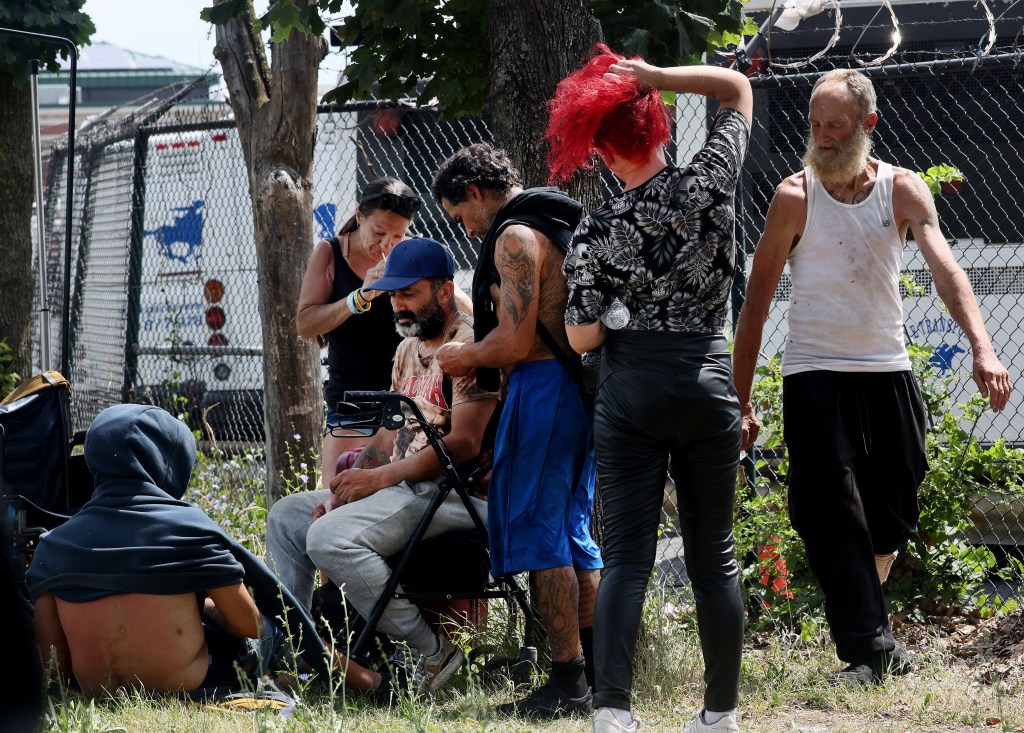Mass and Cass is Boston’s nightmare.
It’s an open-air drug market that ebbs and flows through police sweeps and homeless encampment breakdowns, only to rise again. It degrades the quality of life for nearby residents. It’s a danger to families, especially children who play amid the minefield of discarded needles. It’s spreading to other parts of the city.
It’s a catastrophe, but not an emergency? At least not according to Boston City Councilor Sharon Durkan, who blocked a resolution fellow Councilor Ed Flynn sought to issue an emergency declaration for the area.
Mayor Michelle Wu’s office later issued a statement saying that the city was opposed to an emergency declaration for Mass and Cass and its surrounding neighborhoods.
“The city is using all levers of public health, public safety, and public works resources, in partnership with the community, providers, and the state, to end congregate substance use and the criminal activity that supports it,” Wu spokesperson Emma Pettit said. “Declaring a local public health emergency does not unlock any additional authority or resources.”
Declaring a local public health emergency as the November mayoral election looms would also be bad optics for Wu. Declaring that the rampant drug problems at Mass and Cass remain so robustly at the end of her first term prompts questions from voters.
Such as, what do you mean, “no additional resources?”
Wu has spent millions adding 15 miles of bike lanes to the city, but fixing the Methadone Mile remains underfunded and elusive. Taxpayers are waiting with bated breath to learn what their part of the White Stadium bill will be, a sum they’ll get after the election, but unlocking resources for Mass and Cass? Can’t be done.
The term Mass and Cass no longer fits the sprawling problem. The borders are stretching.
Katherine Kennedy, a Beacon Hill resident and mother of two small children, said last fall that drug use is so rampant in the area that she’s been forced to carry a “sharps container” in her diaper bag.
“I pass discarded needles as I walk my 5-year-old to her public school every day,” Kennedy said.
Last month, a South End mom’s life was upended when her 4-year-old was jabbed by a discarded needle. The little boy was not the first.
Durkan noted as she blocked Flynn: “I don’t believe this resolution represents the right steps forward. For starters, what funding would an emergency declaration provide? None. All it would do is waive public process.”
It could, however, get Boston in on some of the grants put forward by President Trump last month. He ordered the AG, Secretary of Health and Human Services, Secretary of Housing and Urban Development, and the Secretary of Transportation to prioritize grants for states and municipalities that enforce prohibitions on open illicit drug use, urban camping and loitering, and urban squatting, and track the location of sex offenders.
Trump’s order also redirects funding to ensure that individuals camping on streets and causing public disorder, and who are suffering from serious mental illness or addiction, are moved into treatment centers, assisted outpatient treatment, or other facilities.
It wouldn’t be easy for Wu to ask Trump, a president she has enthusiastically resisted, for some of that money.
But it is necessary for the city.


